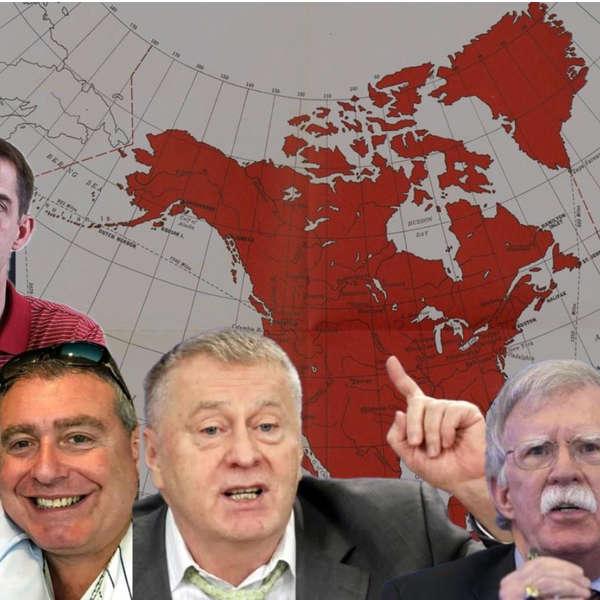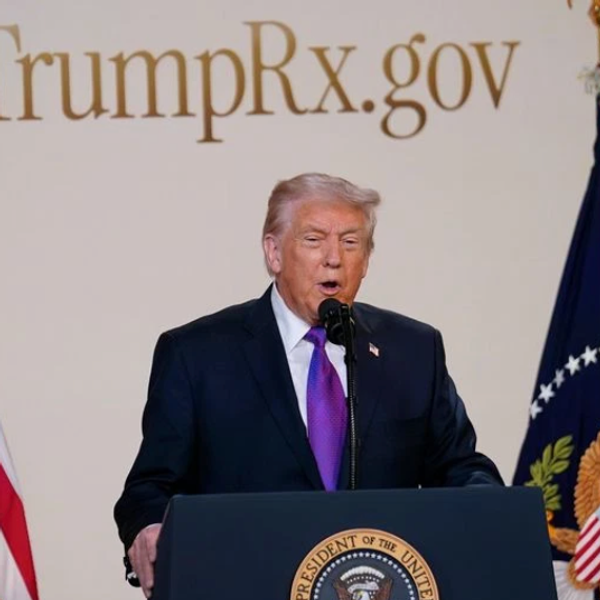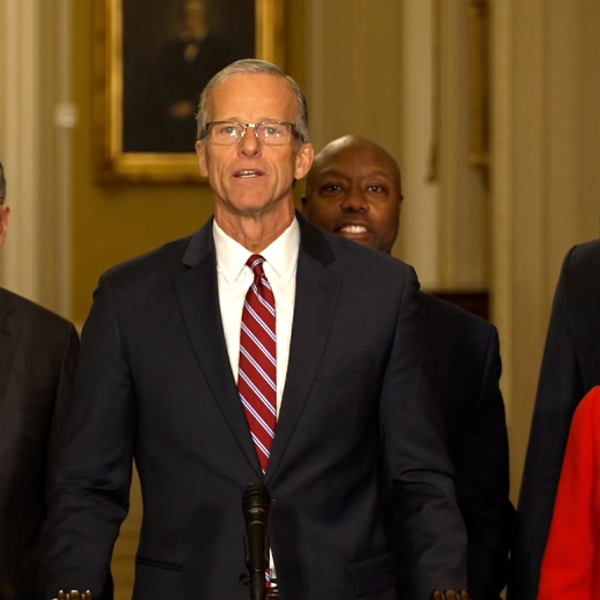Corruption? Why Operation Warp Speed Didn’t Provide Enough Vaccine Doses

Operation Warp Speed Didn't Provide Enough Vaccine Doses
Reprinted with permission from Daily Kos
Operation Warp Speed was designed to promote the rapid development of vaccines to fight COVID-19, to secure enough of that vaccine to treat Americans in danger, and to distribute the vaccine rapidly. If the pandemic itself had been met by a coordinated national strategy—one with unified, appropriate restrictions and a network of testing and case tracing—the goals of Operation Warp Speed might have been achievable. But since Donald Trump deliberately allowed the pandemic to run rampant, it was likely impossible from the outset for any response to be adequate.
Still, Operation Warp Speed has fumbled badly on every point. When it comes to the logistics that Trump bragged about for months, the general in charge has already admitted failure. But it's those two other goals—promoting vaccine development and securing an adequate supply for the nation—where Operation Warp Speed really stumbled. And that failure goes back to a pair of decisions that were made early on, which are translating into hundreds of millions of missing doses now.
The biggest investment that Operation Warp Speed made was for a COVID-19 vaccine with one real distinction: It doesn't work.
Trump introduced former GlaxoSmithKline executive Moncef Slaoui as the head scientist for Operation Warp Speed. On the surface, it didn't seem a bad choice. After all, GlaxoSmithKline had been involved in the development of 14 vaccines over the previous decade. Slaoui certainly had experience with both the science and the scientists involved in many of the efforts. And many of those involved were also familiar with Slaoui.
Some organizations, like Pfizer, did not approach Operation Warp Speed for funding. It wasn't until July that the government made a deal with Pfizer. That deal was an advance purchase order to secure 100 million doses (enough for 50 million people) of the vaccine developed by German firm BioNTech and manufactured by Pfizer when it became available. If Pfizer didn't deliver, they didn't get paid.
On the other hand, Operation Warp Speed provided $456 million in advance funding for Johnson & Johnson's vaccine, up to $483 million for Moderna, $1.2 billion for AstraZeneca's vaccine, $1.6 billion for Novavax, and $2.1 billion for a vaccine to be developed by Sanofi and GlaxoSmithKline. Most of these development deals came with advance arrangements to secure doses from the manufacturers, including 300 million doses of the AstraZeneca vaccine, 100 million doses of Novavax, and 100 million doses from Sanofi/GlaxoSmithKline.
In essence, Slaoui developed a strategy that was "don't put all your eggs in one basket," which may seem wise except that the way in which it was implemented actually required that every single egg remain intact for the program to work adequately. None of the manufacturers could deliver their full number of doses until well into 2021. What Operation Warp Speed had created was a situation where unless every vaccine was a winner, there were guaranteed to be vaccine shortages lasting for months.
This could have been remedied. Early on it was clear that some vaccines were moving through the pipeline more quickly than others and demonstrating better results in Phase One and Two trials. But Operation Warp Speed failed to adjust its targets to obtain more doses of those vaccines. Most notably, when given a chance to purchase another 100 million doses of the Pfizer vaccine, Slaoui passed. He justified this decision by saying that other vaccines on the way, such as the one from AstraZeneca, were going to be much easier to distribute than the Pfizer/BioNTech offering, which requires deep cold storage.
That might be fine if the AstraZeneca vaccine was available. But it's not. AstraZeneca's Phase Three testing was marred by manufacturing issues that meant not every participant got the same amount of vaccine in an initial dose. This was further complicated by results suggesting that volunteers who got less vaccine actually had a better resistance to COVID-19. Sorting out the AstraZeneca data is expected to take some time, and though the company has moved for approval in the U.K., any approval from the FDA is likely weeks away at best. Additionally, AstraZeneca's vaccine results indicate that it's considerably less effective than the offerings from either Pfizer or Moderna. A 70 percent effective vaccine would be good in most cases—but not when a 95 percent effective vaccine is also out there.
The U.S. has now announced that it has secured 100 million more doses of the Pfizer vaccine. However, these will be delivered in late spring after Pfizer has delivered the 200 million doses already ordered by nations that purchased earlier.
The bet on AstraZeneca and pass on Pfizer was one of two huge decisions that make everything done by Operation Warp Speed seem more suspect. The other was the huge investment in the Sanofi/GlaxoSmithKline vaccine candidate. There are very good reasons to be suspicious of this action. Slaoui is not just a former GlaxoSmithKline executive, he is still sitting on $10 million in GlaxoSmithKline stock—which he has refused to sell. "I won't leave those shares," said Slaoui, "because that's my retirement." Of course, no one was asking him to surrender it for free. Slaoui recently sold $12 million in other stock, but apparently feels that $22 million is inadequate to fund his retirement.
Slaoui's relationship with GlaxoSmithKline is looming especially large after results that were reported back on Dec. 11. As Stat News reported, the vaccine that got the largest up-front payment from Operation Warp Speed has the singular distinction of flunking out in Phase Two testing. The Sanofi/GlaxoSmithKline vaccine failed to produce the level of immune response thought to be necessary for protection of older patients. This means the manufacturers are going back to square one. Any vaccine that results from this effort will not be available before the second half of 2021—at the earliest.
The biggest order Operation Warp Speed placed was for the AstraZeneca vaccine. The biggest investment it made was in the GlaxoSmithKline vaccine. Both of those have turned out to be very bad bets, and the way that these deals were structured guarantee that Americans will not have adequate vaccine supplies for months.
Was there a clear alternative? Of course: Put in an advance order to all of the manufacturers that was enough to secure vaccine for the entire nation if delivered by early 2021. The worst thing that could have happened in that case was that the nation spent a few billion on extra vaccine—vaccine that could still be sold or given to others around the world. The worst thing that could happen without such a deal … is what's happening.
- 'Lives Were Lost': Dr. Bright Laments Trump's Inept Pandemic ... ›
- We Already Paid For Gilead's Covid-19 Treatment — And Shouldn't ... ›
- As Virus Overtakes Texas, Houston Hospitals Face Crisis - National ... ›
- Why 'Fast Tracking' A COVID-19 Vaccine Isn't So Simple - National ... ›
- Anti-Abortion Politics Blocks Research On COVID-19 Vaccine ... ›
- Most States Are Unprepared To Distribute Pfizer Covid-19 Vaccine ... ›
- Biden Secures 200 Million More Vaccine Doses -- But Says Masking Still Vital - National Memo ›
- Biden aides weighing boosting vaccine production with Defense ... ›
- Covid vaccine: Dr. Scott Gottlieb expects shortages to last through ... ›
- Dry ice shortage concerns create COVID-19 vaccine distribution ... ›
- Governors complain of COVID-19 vaccine cutback ›
- Senate Democrats press Trump on possible vaccine shortage ... ›
- COVID-19 vaccine: Experts warn of vials, planes, and storage ... ›
- COVID-19 Vaccine Research Is Facing a Monkey Shortage - The ... ›
- Michigan says it's shortchanged on COVID-19 vaccine; Pfizer says no ›
- States will start getting COVID-19 vaccine Monday, US says ›








